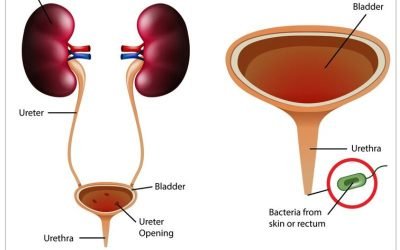
Comprehensive Urinary Incontinence Treatment in Kolkata
Introduction
Urinary incontinence is a common condition affecting millions of individuals worldwide, causing involuntary leakage of urine. This condition can significantly impact one’s quality of life, leading to social, emotional, and psychological distress. In Kolkata, Dr. Bivek Kumar, a renowned urologist, offers comprehensive and advanced treatments for urinary incontinence. His goal is to help patients regain control and improve their overall quality of life by providing personalized and effective care.
Understanding Urinary Incontinence
Urinary incontinence is not a disease in itself but a symptom that can result from various underlying conditions. These conditions can include weak bladder muscles, an overactive bladder, nerve damage, or physical stress on the bladder. Understanding the different types and causes of urinary incontinence is crucial for determining the most effective treatment approach.
What is Urinary Incontinence?
Urinary incontinence is defined as the involuntary leakage of urine. It is a widespread condition that affects millions of people around the globe, disrupting their quality of life and daily activities. The severity of urinary incontinence can range from occasional leaks when coughing or sneezing to having a sudden and intense urge to urinate that prevents reaching a toilet in time.
Types of Urinary Incontinence
- Stress Incontinence: Leakage occurs during physical activities such as coughing, sneezing, or exercising, due to pressure on the bladder.
- Urge Incontinence: Characterized by a sudden, intense urge to urinate followed by involuntary leakage. This is often associated with overactive bladder syndrome.
- Overflow Incontinence: Occurs when the bladder does not empty completely, leading to frequent dribbling of urine.
- Mixed Incontinence: A combination of stress and urge incontinence.
- Functional Incontinence: Caused by physical or mental impairments that prevent timely access to a restroom.
Causes and Risk Factors
Several factors can contribute to the development of urinary incontinence, including:
- Aging: As individuals age, bladder capacity decreases and pelvic floor muscles weaken.
- Pregnancy and Childbirth: Physical stress and hormonal changes can affect bladder control.
- Menopause: Decreased estrogen levels can weaken bladder tissues.
- Prostate Issues: In men, an enlarged prostate or prostate surgery can affect bladder function.
- Neurological Disorders: Conditions such as Parkinson’s disease, multiple sclerosis, or spinal cord injuries can impact bladder control.
- Obesity: Excess abdominal pressure can weaken bladder muscles.
- Medications: Certain medications can affect bladder control and contribute to incontinence.

Symptoms and Diagnosis
Common Symptoms of Urinary Incontinence
- Frequent Need to Urinate: Experiencing the urge to urinate more often than usual, sometimes even shortly after using the restroom.
- Involuntary Leakage of Urine: Uncontrolled urine leakage, which may occur during activities like laughing, coughing, sneezing, or physical exercise.
- Urgency to Urinate: A sudden, compelling need to urinate that is difficult to delay, often leading to leakage if a restroom is not immediately accessible.
- Frequent Urination at Night (Nocturia): Waking up multiple times during the night to urinate, which can disrupt sleep and overall health.
Diagnosis and Evaluation
Dr. Bivek Kumar follows a thorough diagnostic process to identify the underlying causes of urinary incontinence. This process includes:
- Medical History: A detailed discussion about symptoms, lifestyle, and medical background to understand the patient’s condition.
- Physical Examination: Assessing the pelvic area and bladder function.
- Urine Tests: Checking for infections or other abnormalities.
- Bladder Diary: Tracking fluid intake, urination times, and leakage episodes to identify patterns.
- Post-Void Residual Measurement: Measuring the amount of urine left in the bladder after urination.
- Urodynamic Tests: Evaluating bladder pressure and urine flow to understand bladder function.
Treatment Options
Non-Surgical Treatments for Urinary Incontinence
- Behavioral Techniques: Including bladder training, scheduled toilet trips, and managing fluid/diet intake.
- Pelvic Floor Exercises: Kegel exercises to strengthen the muscles that control urination.
- Medications: Drugs that can help manage symptoms of urge and stress incontinence by relaxing the bladder or increasing bladder capacity.
Surgical Treatments for Urinary Incontinence
- Urethral Sling Surgery: A mesh sling is used to support the urethra and bladder neck, helping to prevent leakage.
- Bladder Neck Suspension: This procedure supports the bladder neck and urethra to prevent urinary leakage.
- Artificial Urinary Sphincter: An implanted device that helps control urine flow by mimicking the function of the urinary sphincter.
Pelvic Floor Exercises and Physical Therapy
Regular pelvic floor exercises and physical therapy can significantly improve muscle strength and urinary control, thereby reducing incontinence symptoms. These exercises are often recommended as a first-line treatment for many patients.
Why Choose Dr. Bivek Kumar?
Dr. Bivek Kumar is a highly experienced urologist in Kolkata, specializing in the treatment of urinary incontinence. His patient-centered approach, combined with the latest medical advancements, ensures personalized and effective care for all patients. Dr. Kumar’s expertise and compassionate care make him a trusted choice for managing urinary incontinence, offering hope and relief to those affected by this condition.
Book an Appointment
If you are experiencing symptoms of urinary incontinence, do not hesitate to seek professional help. Dr. Bivek Kumar offers comprehensive consultations and personalized treatment plans to address your condition effectively. To book an appointment, please visit our website or call us at +91 8891832014.
Frequently Asked Questions (FAQs)
Urinary incontinence is the involuntary leakage of urine, which can significantly impact the quality of life. It can be caused by various factors, including weak bladder muscles, nerve damage, or physical stress on the bladder.
The common types include stress incontinence, urge incontinence, overflow incontinence, mixed incontinence, and functional incontinence.
Diagnosis involves a thorough medical history, physical examination, urine tests, bladder diary, post-void residual measurement, and urodynamic tests to identify the underlying cause.
Treatment options vary based on the type and severity of the condition and include lifestyle modifications, pelvic floor exercises, medications, medical devices, minimally invasive procedures, and surgical treatments.
Yes, lifestyle changes such as dietary modifications, weight management, and bladder training can help manage urinary incontinence effectively.

